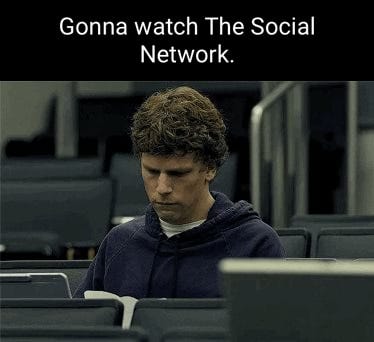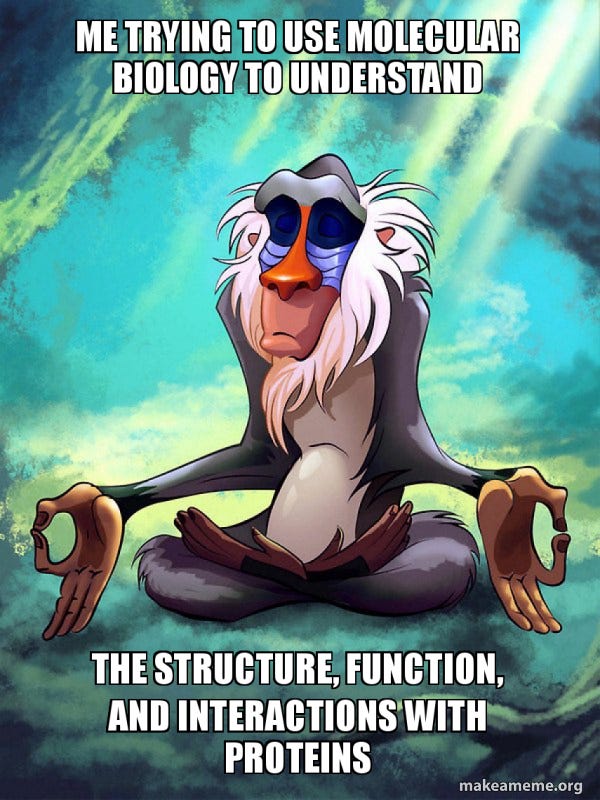The Why Illusion
Does life need meaning to feel meaningful?
Hi everyone, writing here after a long hiatus. I just finished the book Gödel, Escher, Bach: An Eternal Golden Braid by Douglas Hofstadter (great read by the way), and the self-reference of the book has made me think in a lot of different ways. More specifically, I have been haunted by the question of what the meaning of my life is, and I have begun looking at it from an interesting angle. Does my life need to have meaning in the objective sense for me to feel that it is worthwhile? Or does meaning emerge from the symbols of life as an illusion?
I have thought about this a lot, and my answer is increasingly favouring the latter. To some people, this might seem surprising and even nihilistic, but I have found an interpretation that does not require meaning in life, and it still avoids nihilism. I have found a truly marvellous reason for thinking so, which this paragraph is too small to contain. Instead, I will expound on it in this post as I talk more about what I call ‘The Why Illusion’.
Does a zebra have a purpose in life?
Let’s actually think about this question: does a zebra, and in general any animal, have a purpose or meaning in life? At the outset, it seems that they are biologically pre-programmed to do whatever they are doing. Their intelligent acts might look ‘intelligent’ sometimes, but more generally, animals are more similar to automata than truly intelligent and self-conscious beings, in that they don’t think about what they are doing.
Even a dog which has been trained to do some acts which seem human-like, does them after it has been trained, or let’s say ‘programmed’, in its mind. In that sense, even if it is breaking out of its biological program, it is only because it was supplied with a more general one.
Before you call me a human snob, let me say that my conclusion is that even humans aren’t that different from animals. We just have a very big and complex program compared to theirs. But it is still a program; it just has less obvious limitations. If an animal’s brain is compared to a simple sorting algorithm, the human brain is more like the code for a game of Tetris.
With that said,
Level 1: The Physical Aspect
This is the simplest level, which all living beings start at. All life on Earth, from bacteria to blue whales, is universally concerned about two things: survival and reproduction. Out of these, the latter part is mere biochemistry. The former is more exciting as it is happening all the time.
For animals, survival means good health, both physical and mental. Good physical health translates to good food and good sleep. That explains the eat, sleep, repeat mentality that many of us have: it’s the simplest self-sustaining loop in the code of our biology.
The next level is to understand the mental health aspect of things.
Level 2: Mind Games
When it comes to mental health, things remain simple enough for animals. But humans are different in one aspect: we are self-aware. We can think about what we think about. I like to imagine it like this: animals have a simple procedural code dictating their lives. Ours uses design patterns and generalisation to make the code more self-referential and flexible. In the words of Douglas Hofstadter,
In the end, we are self-perceiving, self-inventing, locked-in mirages that are little miracles of self-reference.
An animal can keep doing the same things for its whole life and not question them. We do the same thing twice or thrice, and we think: “Is this the point of it?”, “Is there a better way to do it?”, “Why am I doing this?”, “Is this good for my long-term well-being?”, and so on. We have a biological craving for novelty, for new experiences, new ways to do things. We love to experiment with stuff. Therefore, we can’t just stop at getting our physical needs satisfied. Our mental needs are comparably significant, much more than other animals, and this is a reflection of our more complex consciousness.
In today’s society, there is one way to get both physical needs and novel experiences satisfied. That is, to throw more money at the problem. Though you might complain that not everyone can do that, I will be making an assumption here that if you are reading this article, you are not living a hand-to-mouth existence. And that brings us to our next level.
Level 3: Money Heist
To throw money, you need it in your hand first. In today’s capitalist world, one way to do that is to work at a job. It doesn’t really matter if it’s a white-collar or a blue-collar job; both have their own challenges. But, since I myself work a white-collar job, let me talk more about that.
Knowledge workers can find their work to be intellectually stimulating and challenging. That is something that the human mind values deeply: something which cannot be simplified down to a simple algorithm (at least not yet), which requires us to think out of the box and come up with creative solutions. No surprise then that we have such phrases like “he is married to his work”; some people start finding work as a source of meaning in their lives.
Here’s a quick way to see that for yourself: if I asked you to introduce yourself, what is the chance that you’ll tell me that “Hi, I am XYZ. I work at ABC Company as a PQR Engineer.”?
I would say it’s quite high. Many people identify themselves with the kind of work they do. In itself, that is not necessarily bad, but making work the goal of your life falls short of living up to your full potential.
For some people, just good work is not sufficient. Even the most interesting work will become boring after a point, and things like exertion and burnout can accelerate the process. Beyond a certain limit, more money does not mean more happiness. You may find yourself asking the now-familiar questions: “Is that it?”, “What’s the point?”, “What more?” etc.
That is answered by the fourth level.
Level 4: The Social Network
Human beings are social creatures; once we have satisfied these basic needs, the next important thing is our interactions with others like us. A very good example is myself: the three levels discussed so far don’t explain why I am writing this essay. But even now I am thinking how to best spread these ideas to you, and see your reaction to it.
We need social bonds, love, and connections. Without that, the other things in life can feel hollow. Love does not only mean having a GF or BF. A close group of friends and/or family members is also love.
Within this level, you never run out of novelty. People have a habit of surprising each other, even when they have known each other for several years. This is because when two non-deterministic, self-conscious, quasi-random beings interact, you can never tell the outcome.
Some people will take this to be the meaning of life. To interact and impact others, to be a part of someone else’s journey. It is not for nothing that Jackie Robinson said that “A life is not important except in the impact it has on other lives”.
However, I would say: don’t. I think it is just a consequence of our biology and our society. It fulfils us, whether it has any objective meaning or not.
In conclusion
These four spheres - personal, financial, work, and social- are equally important. Ignoring any of them leads to a loss of fulfilment. This is the ikigai of life, and we want to be at the intersection of these spheres, as that is where we are the happiest and most fulfilled.
In my opinion, then, a better question than “What is the meaning of life?” is “What is a fulfilled life?” My answer to it is a life which keeps these four aspects balanced a majority of the time. Of course, exceptions will be there; that’s life for you. A deadline at work, a big social get-together, are not uncommon, but they should not be the norm.
What about everyone else?
In going from level 2 to 3, I made this assumption that you are, to say it politely, economically better off than many other human beings on this planet. A valid question that you might have is, what about them? How do they fit into this hierarchy that I have created?
The answer is: I don’t really know. You might consider me an elitist for saying this, but the fact of the matter is that I am privileged enough not to worry about that. Besides, if I don’t live that life, who am I to comment on it anyway? I can only write about my own experience.
That said, I think for such people, the presence of a bigger meaning or goal becomes really important as they have something to look up to. Karl Marx was onto something when he said that “Religion is the opium of the masses”. But my aim is to live, and let live. If it works for you, it’s not a problem for me.
What do you think about it? Please let me know in the comments below, and let’s have a healthy discussion on this!
If you like what I am doing, this is a great way to show appreciation!


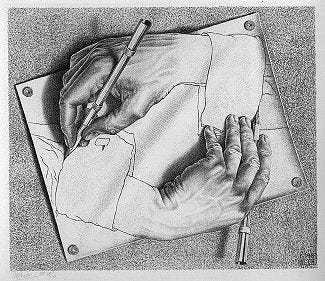
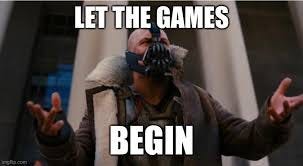
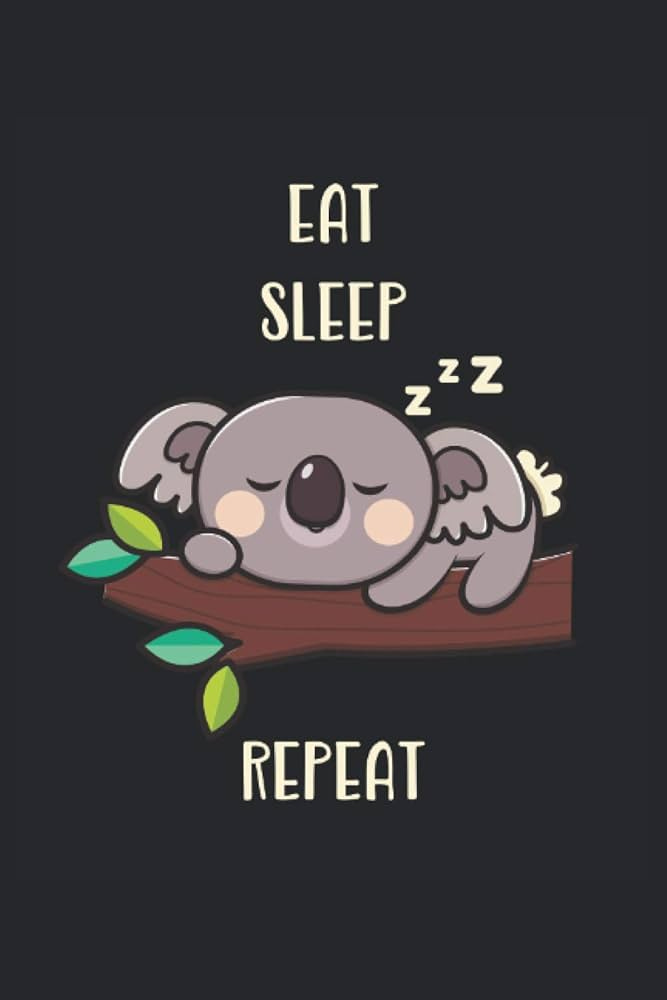
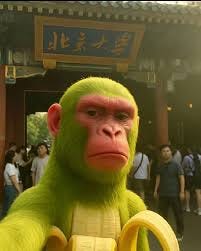

![1. It's More Important to Be Happy Than to Be Rich - Your Money: The Missing Manual [Book] 1. It's More Important to Be Happy Than to Be Rich - Your Money: The Missing Manual [Book]](https://substackcdn.com/image/fetch/$s_!eVxf!,w_1456,c_limit,f_auto,q_auto:good,fl_progressive:steep/https%3A%2F%2Fsubstack-post-media.s3.amazonaws.com%2Fpublic%2Fimages%2Ff9b7ba6a-8f7a-4bed-92b0-4df95dbfb461_509x457.png)
